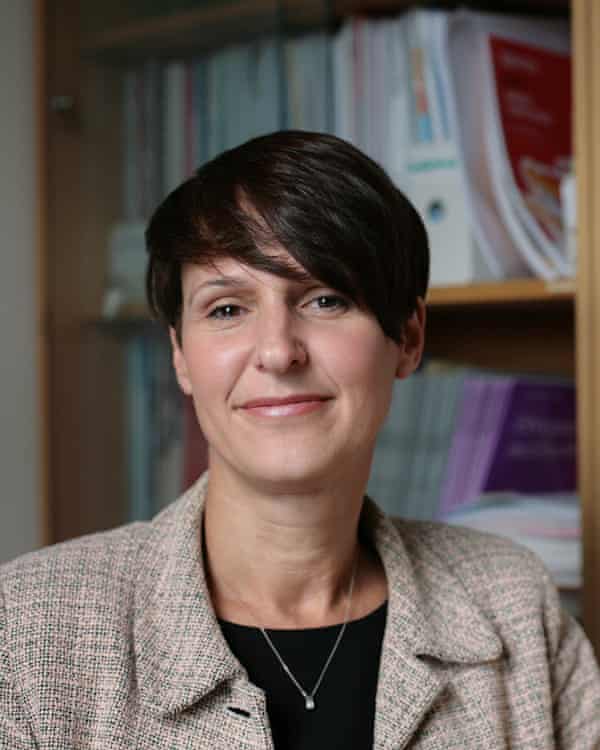
It was a Saturday morning and Garry Ratcliffe, chief executive of a multi-academy trust of primary schools in Kent, was in school early to supervise the start of tutoring sessions provided by the government’s national tutoring programme (NTP).
The programme aims to help pupils most in need of catching up after the disruption of Covid, and 12 children had been promised tuition. Ratcliffe’s school is in a deprived area with no culture of Saturday morning clubs, and parents had to be persuaded that it was worth sending in their children at the weekend.
But just 10 minutes before the sessions were due to start, the tutoring company rang to say they couldn’t find any tutors.
Like many headteachers, Ratcliffe does not need convincing that one-to-one or small group tutoring can be a great way to help children. Middle-class parents pay for private tutors in their droves: 41% of 11- to 16-year-olds in London receive tuition outside school, according to research by the Sutton Trust, a charity that works on social mobility . The government’s £1.5bn programme is intended to level the playing field, bringing tutoring to pupils all over the country whose families could never afford it.
“We really believed in it as an idea,” Ratcliffe said. “We contacted a tutoring company that was a registered partner. They promised the earth and delivered very little.”
Ratcliffe’s trust arranged for pupils “in real need” of help with lost learning to come in for three-hour sessions over six weeks. On three of those Saturdays, the company called moments before the sessions to say it couldn’t find tutors. He said the tutors who did turn up were “a real mixed bag” in terms of quality. “One tutor was an absolute gem, another was on her mobile the whole time, and a third turned up asking us to print things out and whether we had anything on the four times table.”
He added: “We gave strong feedback, which obviously the company was disappointed by as it would mean they might be dropped. They weren’t.”
Sources said the government is poised to axe Randstad, the Dutch multinational company appointed to deliver the programme, after revelations that pupil enrolment is more than 90% below target. The latest official figures reveal that, as of 12 December, pupils had begun 52,000 courses with the official tuition partners through the main pillar of the programme. That is just 10% of the firm’s 524,000 target for this academic year.
School leaders report serious problems with the service, including lack of availability and poor quality of tutors. Many say they have found the main NTP website too difficult to use. Many are turning their backs on the main route and organising tuition through a schools-led route instead.
Randstad was awarded the contract to run the programme last June, after submitting a £25m bid that significantly undercut a bid from charities including the Education Endowment Foundation (EEF), which ran the programme in its first year. Randstad’s bid came in well below the £62m maximum proposed by the government.
Sam Freedman, senior adviser to the education charity Ark and special adviser to Michael Gove when he was the secretary of state for education, said the procurement process was developed in a way that allowed price to become too important.
Although Randstad was considerably cheaper, Freedman said its bid was “only just over the threshold” on quality. “Why was that allowed? It’s not a scientific judgment: someone must have decided to let them in.”
Experts say that finding enough high-quality tutors, especially in more deprived areas where there is no established market for private tuition, was always going to be a challenge for a programme of this scale.
However, Freedman said: “A proper provider would have been running a high-quality recruitment and training programme to get numbers up. They just don’t have the money to do that as the bid they put in was so low.”
Michaela Ellis (not her real name) is a single mother from Redruth in Cornwall whose daughter fell behind in the pandemic with her GCSEs looming. She said she had been very pleased when the government first announced the programme because, as an unpaid carer, she would never have been able to afford tuition for her daughter herself.

“I felt that some individual attention, even in a small group, would boost her confidence and she would feel less overwhelmed. But we are now weeks away from exams and she’s had nothing,” she says.
A spokesperson for the Department for Education (DfE) said: “We are determined to support children from all backgrounds to catch up on lost learning and reach their potential. Over 300,000 courses were delivered in the last term alone and the programme remains on track to deliver the ambitious target of teaching two million courses this academic year.”
The spokesperson added that a range of measures would ensure all tutoring was of high quality.
However, the Association of School and College Leaders (ASCL) recently asked their members for feedback on the programme. The responses, which the Observer has seen, paint a very different picture.
One secondary school head said: “I have one word for our experience of the programme: disastrous. No-shows, lack of subject specialist knowledge, punctuality issues. One of the tutors withdrew her services entirely on the day the students were expecting her.”
The head of a secondary school in the south-west said they hadn’t been able to find any tutors through the main NTP programme.
“We have had appointments booked [with NTP tutoring partners] to discuss, which have been cancelled at the last minute. We have heard from other schools that you don’t often get the same tutor each time which is difficult for the students. We have tried local tutors and have had no response.”
The school has decided to use the direct schools funding pathway to pay its own staff to deliver extra tuition after school. The head said: “Our staff are exhausted but want to make sure our students get a good deal.”
Geoff Barton, general secretary of the ASCL, said: “If you are in an area like the north-east or south-west, where tutoring isn’t part of the cultural tradition, and you’re not allowed to employ your own people, supply is always going to get in the way.”
Barton says the programme is currently operating with “byzantine complexity”. His union is calling for all the money to be given directly to schools instead.
Nick Brook, deputy general secretary of the National Association of Head Teachers, said the 20 pages of advisory notes and a website that is “far from intuitive” on how to register interest or find a tutor are putting schools off using the NTP.
“One of the biggest problems is that they have taken something that should have been simple for schools to use and made it very complex. School leaders have a lot on their plate but if it was straightforward many more would have accessed it by now,” he said.

Photograph: Martin Godwin/the Guardian
Lee Elliot Major, professor of social mobility at the University of Exeter, who was lobbying for a national tutoring scheme before the pandemic hit, said: “Tutoring is huge business in this country because of the middle-class demand. But the big problem is consistency. How high-quality are these tutors? It’s not just about numbers, it is about how good they are.”
A spokesperson for Randstad said: “We understand the importance of the NTP and take the responsibility of running it seriously. We ensure that all tuition providers accepted on to the NTP framework have successfully passed the robust quality, safeguarding and evaluation standards set by the DfE.”
Professor Becky Francis, chief executive of the Education Endowment Foundation, said there was clear evidence that one-to-one and small group tutoring could lead to four to five months of progress for pupils. But she warned that “it does need to be high quality to have an impact”.
The EEF enrolled 125,000 pupils in its first three months of running the programme in 2020, which was half of their target for the whole year. Having met their targets for the first year, it was widely expected that the charity would be tasked with running the programme.
Francis declined to comment on Randstad’s failure to meet its targets, but said: “I feel very proud of what we achieved in the first year.”